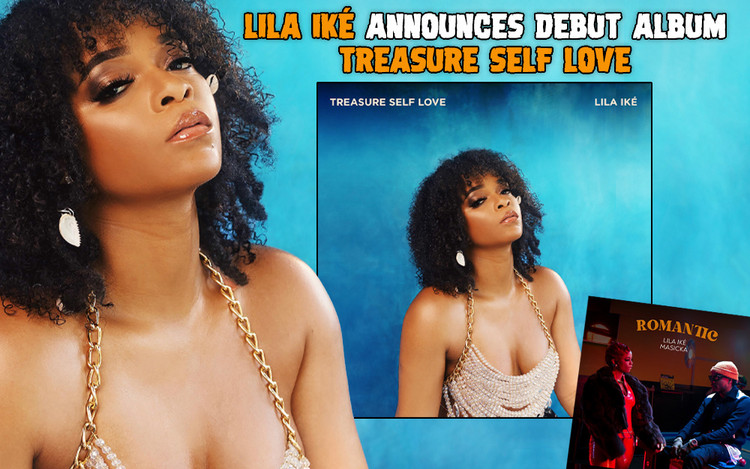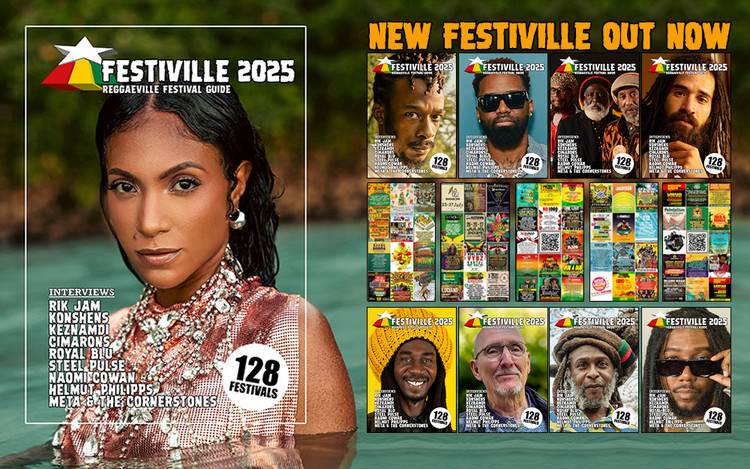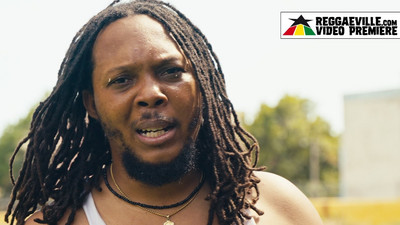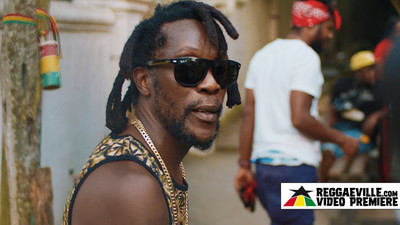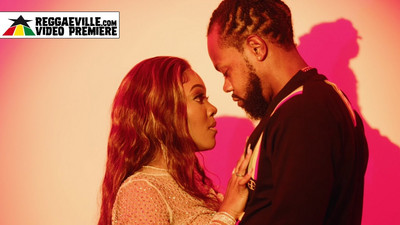Alpha Blondy ADD
Interview: Alpha Blondy
03/15/2013 by Valentin Zill
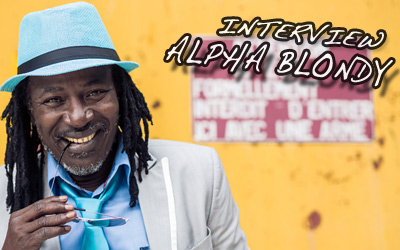
It is quite an event when reggae legend Alpha Blondy of Côte d‘Ivoire releases a new album. His albums have always reflected political events in his home country, and his new one, Mystic Power, is no exception. While Côte d‘Ivoire seems to have found a way out of the crisis around the last presidential elections in 2010/2011, its neighbor to the north, Mali, suffers from a war incited by self-proclaimed holy warriors. Valentin Zill called Alpha Blondy while the latter was staying in Paris to talk about Mystic Power, the French engagement in Mali, and the changed cast of his band, the Solar System.
Alpha, two years after Vision, you're back with a new album, called Mystic Power. Mystic Power mixes reggae music with rock in a way not even Peter Tosh had done. What was your objective, what was your vision for Mystic Power when you went to studio?
Well, Mystic Power is a new dimension really. I wanted to add to the roots dimension of reggae this rock dimension. Because we usually play roots reggae, but I wanted it to be roots rock reggae. So I tried to respect that wacky side of this album.
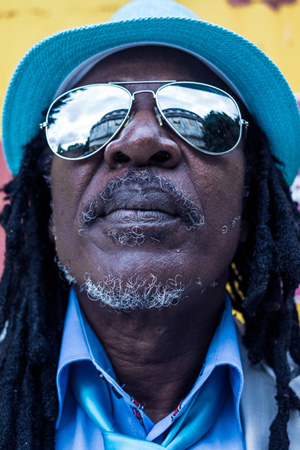 You produced the album yourself, why didn't you choose to work with a producer?
You produced the album yourself, why didn't you choose to work with a producer?
I'm always the executive producer of my albums. I've worked with some guys like Clive Hunt or Boncana Maïga. But most of the time, I'm the producer and I'm the executive producer. But I wanted to produce that album all by myself, because I wanted to take that new direction.
On board of Mystic Power, there's again an impressing number of legendary musicians like Dennis Bovell, Tyrone Downie, Lee Jaffe, Aboubass, Charly Laubé and lots of others. You've been working for many, many years with most of these guys. What fascinates you about working with them?
I know them from long time, they're my friends. We were longing to work together, and this was for us the opportunity to fulfill that dream.
Mystic Power comes with some surprising combinations. The first is called Hope and features Beenie Man.
We toured together in French Guyana, we shared the same stage on a concert with Rita Marley and Beenie Man. In Surinam, we were received by the President of Surinam. And we were staying at the same hotel. We had time to chat, to talk. I proposed to him to do something with me on my new album, and he agreed. So when we were back in Europe, he was in Germany, and we invited him to come to Paris to do the work. We were pretty impressed by his performance.
The second combination is called Seydou, it's with Coumba Gawolo. Would you introduce her to us?
Ya. Coumba Gawolo, I met her in Abidjan. She was having a concert in Abidjan and she's a friend of mine, because she invited me a couple of times to come to Dakar. When she called me to let me know that she was in Abidjan, I invited her to come to the studio. I wanted her to listen to my next album, Mystic Power. And when she listened to it, she said she was very interested in the song Seydou. And she wanted to do something in that song. Which she did. And I love the result.
The most impressive combination is the one with Tiken Jah Fakoly, which features also Ismaël Isaac, Meiway, Monique Seka, and Wiper Sabeherty. This is a combination many fans of yours and Tiken Jah have been waiting for about a decade.
Tiken and I, we started to give a helping hand to the government in this reconciliation process. And we knew that people said that Tiken and Alpha can never reconciliate. So when we decided to work together, I'm the one who called him first. He joined me in my hotel, and I made him listen to the project. He was interested. We did that to give a lesson to the politicians of the Ivory Coast, that there was nothing better than understanding, and that we cannot develop Africa without peace and understanding.
How originated the idea to add more artists from Côte d'Ivoire to that tune?
It's a very long song, and I wanted every artist to bring his own text when joining the project. Ismaël Isaac had a message, Tiken Jah has his message, Meiway has his message. Because Tiken, Meiway, Wiper - Wiper sings in Bété, Tiken sings in Malinké, Ismaël Isaac and Alpha sing in Dyoula, Monique Seka sings in Attié, and Meiway sings in Appolloniens. So, different languages, different dialects of Côte d'Ivoire to broadcast the same message of peace and unity and reconciliation in the country.
I guess you get along pretty well with Tiken Jah these days?
Oh ya, ya.
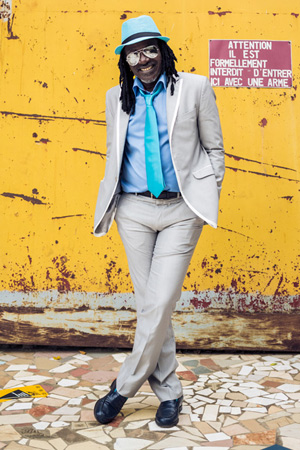 Another very interesting tune on Mystic Power is Crime Spirituel. When I listened to it the first time, I figured you might have had the situation in Mali in mind when you wrote it.
Another very interesting tune on Mystic Power is Crime Spirituel. When I listened to it the first time, I figured you might have had the situation in Mali in mind when you wrote it.
Well, it was not specially made for the people of northern Mali. This song was written after 9/11, the Twin Towers in New York.
So it's a general message to those that think they could make decisions in God's place.
Yeah, it's a general message to all the people who think that God is their property and who commit crimes in the name of God. That's what I meant. Nobody has the right - it's written in the Bible, it's written in the Koran, in the Thora: Thou shalt not kill. And you cannot kill in the name of God. You cannot kill God in the name of God. That's blasphemy.
I recently read an interview with you published by Maliweb, in which you talk about the crisis in Mali. You said that petrol was the root of the very crisis. Now this is the first time that I hear this explanation, the first time I hear that there's supposed to be oil in the Malian desert. What I had heard is that there's quite a lot of uranium.
It was a supposition. I supposed that for people to go fight for some sand in a desert, there must be something under the sand. I imagined it got to be some oil or uranium.
As the French Army's fighting in Mali now - personally, it was obvious to me that it was an imperialist war in their worst tradition. However, many Malians seem to welcome the French armed forces now.
Well, I wouldn't talk only about their involvement in Mali, but about their involvement in Africa. Because these islamist people have more power than any West African country or government. They're more organized than our governments. What I would like to emphasize is that the fact that the French government has to intervene to free Mali means that the African Union did not do its job at all. Our sovereignty should be protected by our own organizations. Which is not the case. I think that the lesson to be learned is, next time when there's an African country getting invaded by any kind of dogmatic group, the African Union should be ready with troops to intervene in a week or in a month, not waiting for nine or ten months for some western army to come chase those invaders. And I think that what France did was great, and it's also a good lesson to all African countries to teach them that sovereignty should be preserved, should be protected. And nobody's gonna protect your sovereignty but yourself.
There are two cover songs on Mystic Power. One is J'ai Tué le Commissaire, which is a French adaptation of Bob Marley's classic I Shot The Sheriff. Why did you pick this tune?
Because that song was written since 1988, when I was in New York. I used to play it with my friends. My record company asked me for the 30th anniversary of the death of Bob Marley if I could do something to glance at Bob Marley. So I just had to reactivate that song.
The second one is as much a surprise as was Stewball on the Vision album. It's called Le Métèque, a chanson from Georges Moustaki.
I love very much Georges Moustaki's songs. When I was in college, we used to listen to Georges Moustaki a lot. I love their spirituality. So, Le Métèque suits Alpha Blondy very well.
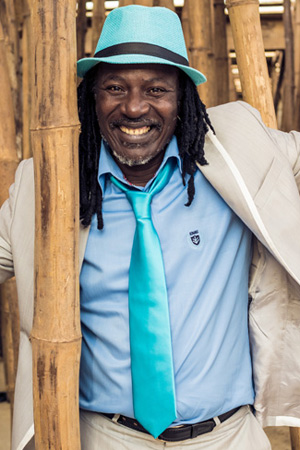 You seem to really like to translate songs from various genres into reggae.
You seem to really like to translate songs from various genres into reggae.
Ya. This is the exercise of trying to do. We have to give a diversity dimension to our reggae, not make it tribal, ethnique. Let's make it worldwide, let's keep a worldwide dimension, proportion.
There's a song on Mystic Power called Pardon, in which you present your excuses to all those who might feel that you've stepped on their toes during the crisis in Côte d'Ivoire. A noble gesture.
Well, as a messenger of the UN, my goal was to avoid war. And I wasn't the only one. The UN wanted to avoid war. ECOWACS wanted to avoid war. We all failed. We did not succeed in avoiding war. As far as I'm concerned, I felt like apologizing. I'm sorry for failing. I wish I would have succeeded in avoiding bloodshed, but unfortunately we failed.
You were an important pillar of the reconciliation tour last fall in Côte d'Ivoire. In retrospective, how successful do you consider this tour?
We tried to use a musical therapy, hoping that we can heal peoples' wounds, psychological wounds, with music. And that's all we can do. We tried with our job, our music, to give them hope, to give them a perspective, to make them forget their pains. We gave some money, some medication. That's all we could do. But I think that there's still more to be done in that perspective. To help people get out of their trauma.
In the song My American Dream, you talk about your own trauma, your adventure in the US in the 1980s. You went to New York to study there and ended up in a mental hospital somewhere in Texas, before you returned to Abidjan. That experience must have left some deep marks if you only process it now, three decades later.
Everything that happens to us enriches us, adds more to our life experience, that's what I think. What I went through was a good experience, lifetime experience. It was rough, it was tough, but it was very instructive, I would say. I wanted to put that into a song: my American dream turned to be nightmare.
You've changed the cast of the Solar System completely now. Why did you do that?
I think that the guys and I, we reached the point where we didn't feel each other anymore. Since I'm the boss, I cannot work with people that I don't feel and that do not arrange my job. I need to be positive all the time. Because if there is a bad vibe on stage, people can feel it. We're trying to spread positive vibes when we're on stage. I kept some old guys, and some went for other experiences elsewhere.
You've already played some shows with the new Solar System. Are the vibes better now in your opinion?
Yeah. You'll see the new guys, they're great.
In the last three decades, you've smoked two packets of cigarettes per day. Is it true that you stopped smoking cigarettes now altogether?
Yeah, I quit everything. I quit cigarettes, I quit weed ten years ago, let's say eleven years ago. Now I quit cigarettes, I quit alcohol, voilà. I'm trying to clean up my body, my system.




